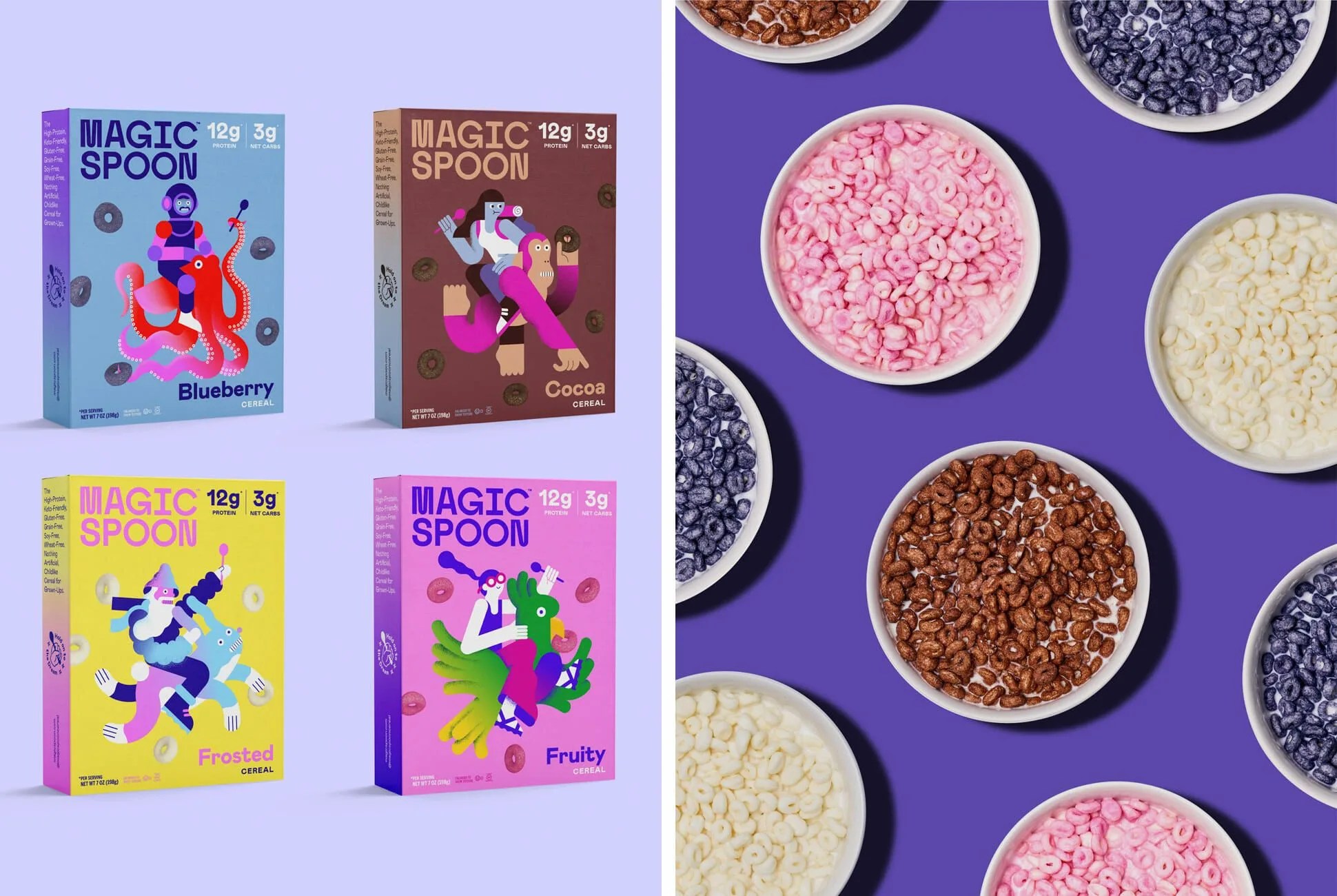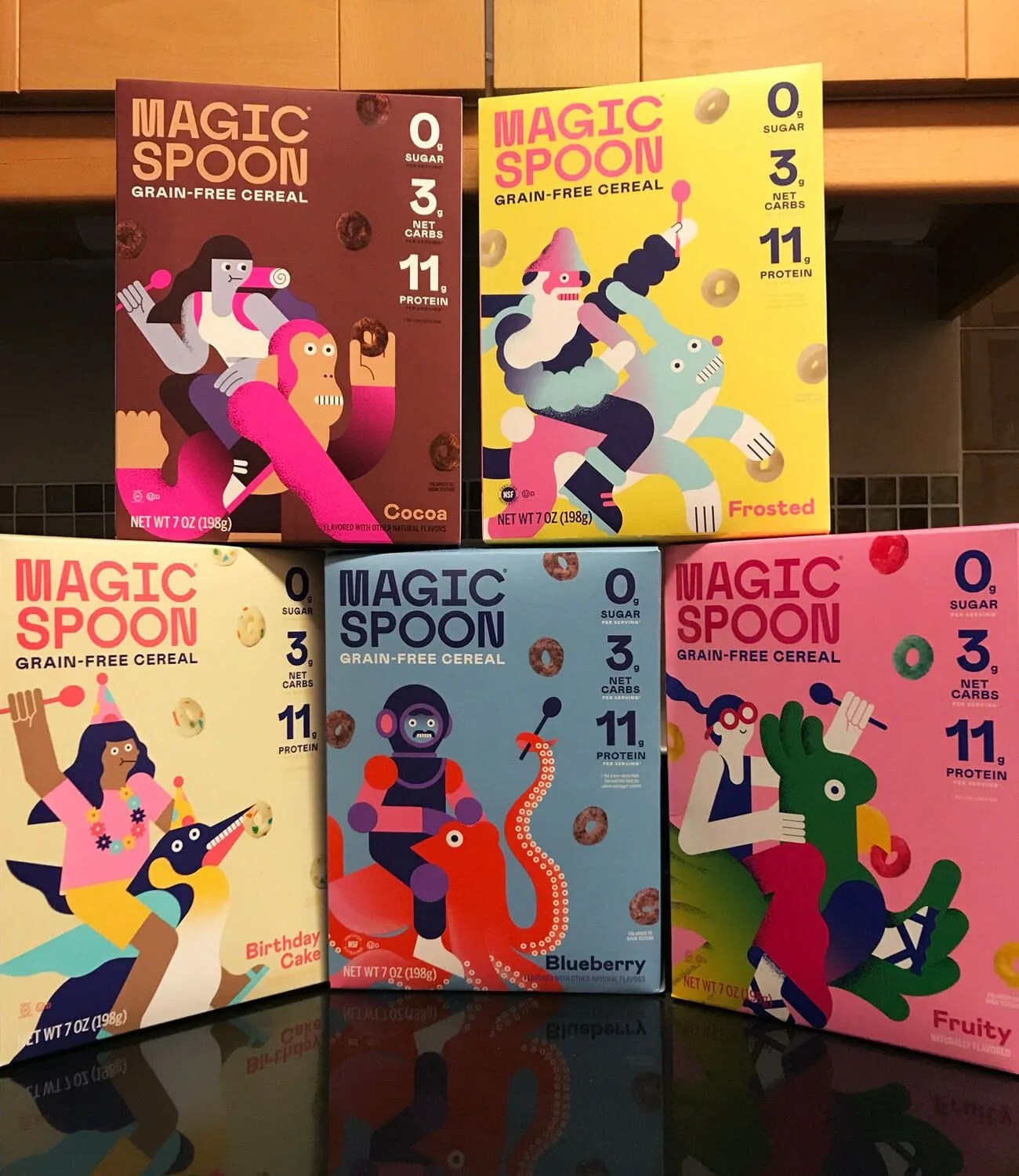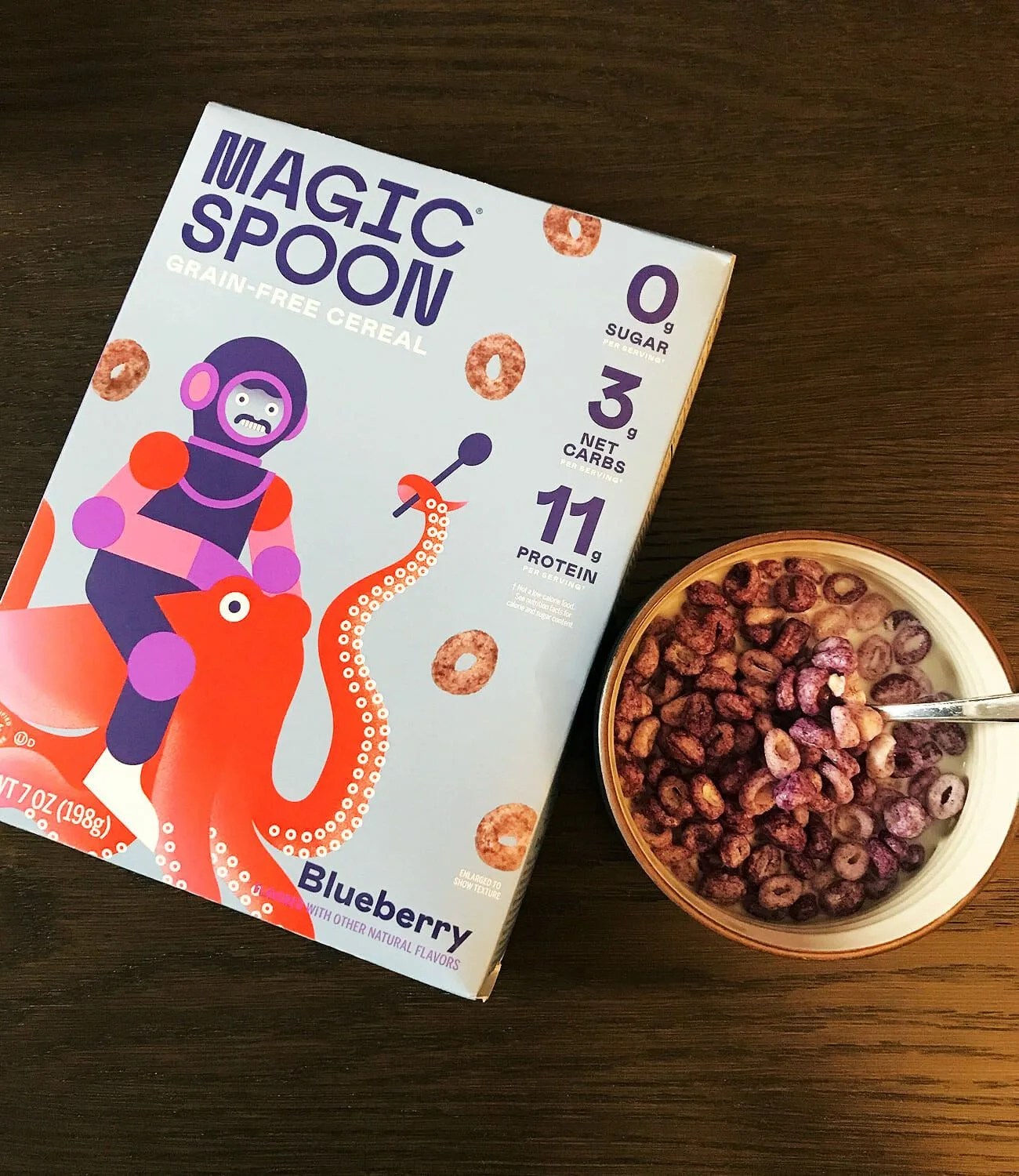Gabi Lewis and Greg Sewitz grew up scarfing down bowls of sugary cereal watching Saturday morning cartoons (Recess and Rugrats, respectively). In an effort to capture that nostalgia, minus the risks associated with high-sugar diets, the two created Magic Spoon, an internet cereal brand that, according to its founders, has seen a major uptick in sales since the spread of coronavirus.
According to the box, Magic Spoon is the “high-protein, keto-friendly, non-GMO, gluten-free, grain-free, soy-free, wheat-free, nothing artificial, childlike cereal for grown-ups.” That’s a lot of things missing, which makes you wonder: what’s left?
What’s Good
Magic Spoon’s catalog of cereals — which include Fruity, Frosted, Cocoa, Cinnamon, Blueberry and Birthday Cake — rely on a sweetener blend of allulose, monk fruit and stevia. While monk fruit and stevia have been used to sweeten healthier versions of unhealthy foods for years (both are very popular in the low- and no-alcohol booze sector), allulose is a newcomer in the sugar alternative game.
Derived from foods like figs and kiwi, it has a tenth of the calories of cane sugar and 70 percent of the sweetness. The FDA doesn’t require zero-calorie sweeteners to be listed on the nutrition facts as added sugar, but it does require them to be counted under total carbohydrates. Unlike “bad” carbs — such as white flour — allulose is not completely metabolized by the body, so it doesn’t affect blood sugar or insulin levels. Magic Spoon has a listed 10 grams of total carbs, but factoring in the 6 grams of allulose and 1 gram of fiber, each serving nets only 3 grams of carbs.
The founders relied on their sweetener blend to mimic the sweetness of real sugar and to eliminate the aftertaste associated with sugar alternatives, which I must commend them on, because it works.


